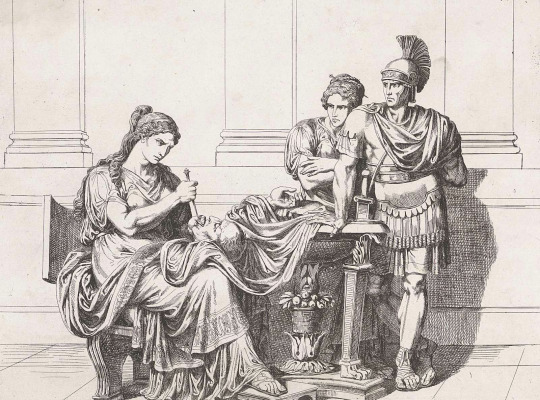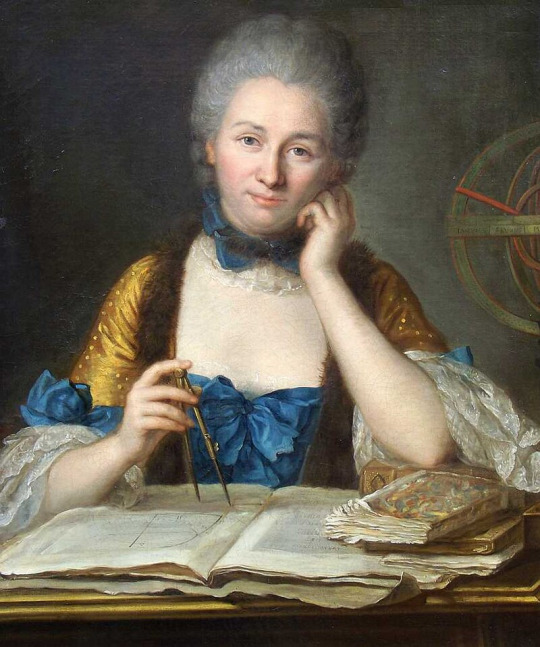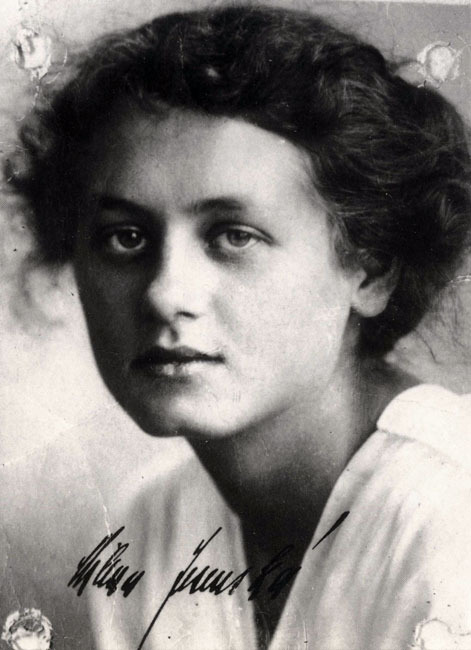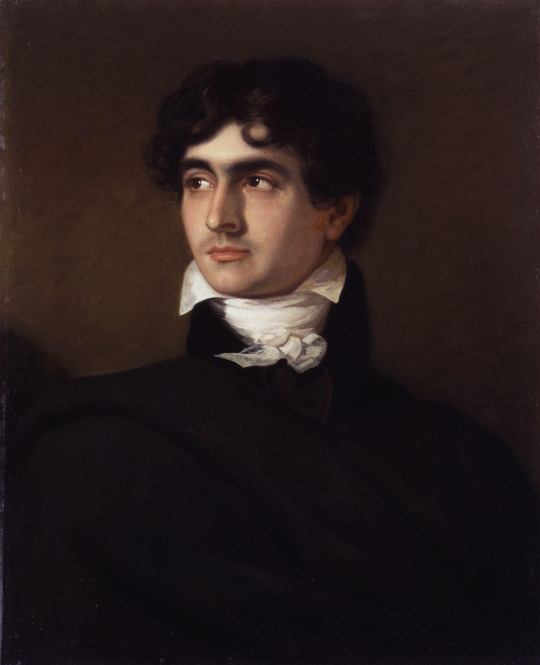#ask byron
Explore tagged Tumblr posts
Note
Oh could you draw Cosette as Mademoiselle LaNoir?

yes!!!!!!!!!!!!!
67 notes
·
View notes
Note
this blog is sk awesomecool what r ur fav headcanons….. can be canon characters or les copains lore
i dont think i really have favourites... obviously bald javert is up there just cause its funny but i have also become fond of javert going a bit loopy post-msurm and growing out his facial hair like Madeleine had it.
For valjean i like the idea that he likes floral patterns. not sure why i like it so much but i DO... catch him wearing a gaudy ass waistcoat!!!!!!! also forever will speak truth of valjean actually liking marius instead of hating him. he probably hated him from the start but later grew fond of him .
cosette.... i like to think shes really dainty and stuff but her attitude does not reflect this. shes like Oh my! what a beautiful flower! papa may i please take it home! but then shes like dragging marius around by the scruff of his neck and stuff. and she will also yell if she has to . WILL punch someone.
Marius i dont even know bro hes like a wet rag to me. i think he looks up to valjean but is unsure on valjean's opinion towards him. he is also a secret huge bitch. oh and in the modern era she is a woman i dont make the rules its true!!!!!!!!!!!
i dont really have any favourite individual headcanons for les copains just yet past like, their opinions of each other. e.g Albéric and François being like brothers, whatever the fuck gérard and rené have going on, marius seeing himself in françois etc etc. theyre just fun .
14 notes
·
View notes
Text
youtuber/podcaster/writer/etc: here's a history of development of vampires in pop culture
me: yayyy say more
them: so they originate folklore, and then the first work of literature about them was penned in 1816, the year without a summer, when lord byron-
me: I Know More Than You
#even if we're narrowing it down to english language works *written by byron* then you're already missing 'the giaour'#'the three english vampire works of the nineteenth century are the vampyre carmilla and dracula' Where's Varney.#smh my head. everyone should ask Me Personally before putting out any projects on this topic.#vampires#marina marvels at life
154 notes
·
View notes
Text




Varieties.
#If you want context you're gonna have to ASK for it boy#art#my art#brawl stars#brawl stars mortis#brawl stars Gray#brawl stars griff#brawl stars barley#brawl stars piper#brawl stars byron#townsfolk trio
118 notes
·
View notes
Note
I don't dislike Grace because none of the characters are perfect and this is probably asking a lot of a woman in 1910, but I really hated how she let her mom blame Louis for Paul's death, and treat him horribly, with very little pushback. Telling Louis "Don't let it inside" doesn't help much. But that's looking at things from a 21st century lens, for one.
I mean, they're not a family who communicates well at the best of times, but I wouldn't be surprised if there is a small part of her that blames him too. It was interesting to re-watch the ep last night and see how much the family just doesn't know what to do with Paul, but that there's really no shortage of love for him. He was institutionalised in Jaccksonville until their father died, and it's implied that Louis and their mother made the decision together to bring him home given the two-hander between them at breakfast, and are now effectively paying off the church to care for him.





It's a really interesting thread here, because in many ways Louis' both father and son for Florence in a way I don't think I picked up on the first time watching. He's patriarch of the family, but ultimately deferrent to Florence's matriarch, and this makes him both father and brother to Grace in the way that he'll later be both father and brother to Claudia.
And look, I do think Louis deep down knows it's not enough, but Grace is the only character to try and reconcile that in a scene I find super interesting, because Louis shifts directly between those roles - concerned and equal brother at first, and then shutting her down in a way that I would describe as quite paternalistic.














Paul's Grace's brother too, and what gets me about this scene is that it's like she can see it. She is worried, she is exploring their options, she's not ignoring the problem in the way that both Louis and their mother are, and it's a pattern that ultimately Louis repeats with Claudia. That paternalistic thread in him dismisses and diminishes the voices of women - including the women that he loves - in order to protect his own feelings, his own interests, his own priorities, under the guise of looking after those who can't look after themselves. The fact that immediately after this he tries to soften the harshness with the extravagant wedding gift too - again, Grace is a prized and spoilt daughter.
Paul's death is nobody's fault, he is so well-loved, but Grace, like Claudia, is voiceless and disempowered in her own family, and Louis offers her brotherhood with one hand and slams a hand on the table as her father with the other.
#and then to use her picture as wife in europe...#this show#anyway i am a grace defender!#but yes again#byronic hero moments!#louis' not trapped in the house he's always got a set of keys#grace + louis#grace de pointe du lac#amc interview with the vampire#using the main tag for this one sure#iwtv asks#iwtv 1.01#welcome to my ama#byronic hero#gothic archetypes
67 notes
·
View notes
Text






The cast of Red Dead Redemption 2
🌞 Tahiti Edition 🌞
#roger clark#noshir dalal#Benjamin Byron Davis#Mick Mellamphy#Rob Wiethoff#Tahiti#Jo armeniox#Samantha strelitz#rdr2#red dead redemption 2#Um... Don't ask me about Rob's hair
77 notes
·
View notes
Note
*Lyf is awoken by a knocking on their door. If they choose to open it, their greeted by the sight of Marius standing there, holding a picnic basket*
"HELLO MY DEAR LYFRASSIR HOW ARE YOU I HAVE FOOD AND WINE!"
WH- ....Oh. Von Raum..
With slurred speech and slightly wobbly steps, Lyf opens the door. They look incredibly tired, along with the replacement of the usual neat and tidy twin braids, now messy and only one.
I didnt expect you to actually.. er, come here. Didn' think you woul- could find me.
The inside of the ship looked like a bloody mess, if you could describe the what looked to be dry splattered rainbow on the wall. Knives stuck out of a certain wall, an inner one, and there were two violins in sight. One smashed and one only slightly stabbed.
36 notes
·
View notes
Note
im here for arab dr orpheus. i believe your beliefs 💯 💯💯💯💯💯💯💯
YAYY spreading my agenda one person at a time. Have old dr o drawings and simba

45 notes
·
View notes
Note
Top 5 underappreciated historical figures!
Thanks for the ask! This one was super fun, but also super difficult to answer. I've purposefully avoided mentioning the ladies of the French Revolution, since I have another question specifically about them lined up.
With that being said, in no particular order:
Fulvia
Anyone in the classics circle likely knows much more about her than I do, but I'm so glad I've discovered her through Tumblr! All of the things I've learned about her so far have been so interesting. It's incredible to see how much political (and military) power a Roman woman was able to yield despite living in a deeply patriarchal society.
(also, the part of me that loves drama really appreciates the story about her stabbing Cicero's tongue with hairpins after the proscriptions and Octavian's atrocious poem about her)

2. Émilie du Châtelet
Also hardly a surprise for anyone who's been following me for a while. Again, the fact that I've only relatively recently found out that there was a female mathematician and physicist in the fist half of the 18th century with such significant contributions to the field makes me almost feel as if I've been lied to.
She is special to me both because she was incredibly smart (she was able to understand Newton like few other people in her time and she spoke so many languages!) but there's also something about her writing that makes her feel deeply human and relatable. I've read some of her texts, and not only are they written in a beautiful prose but they're also incredibly moving. Her view on how to achieve happiness in life is one of the best I've ever came across, and her arguments for the education of women always make me feel so emotional...
...when she says that it was only after she realised that the circle of (male) French intellectuals accepted her among themselves and treated her as equal that she realised she too "might be a thinking creature"... I don't know, there's something about it that always gets to me.

Okay, time to introduce some male historical figures as well! This one is a residue from the time when I was really into the American Revolution.
3. Peter Stephen Du Ponceau
He was probably the only one in Baron von Steuben's original group that was able to speak decent English when they first arrived in the US to join the revolutionary war, which a) makes him quite important b) is kind of funny to think about.
But what I especially like about him is that he was a talented linguist who seemed to have genuine respect for other cultures, which let's face it, was quite rare in his times. While taking part in the American Revolutionary War, he recorded and studied the languages of Native American People. How cool is that?
(He was also potentially queer and I do have a soft spot for queer history)

Okay, guess should bring up someone interesting from Czech history as well. I fully confess that my own country's history is not necessarily my favourite area of study, but for her, I'll always make an exception:
4. Milena Jesenská
Probably most well known as Kafka's (kind of?) girlfriend/pen pal, but there is so much more to her story!
She was a writer and a journalist during the first half of the 20th century. She was really talented and soon made a reputation for herself, which let's face it, wasn't an easy thing to do for women in her time.
After Czechia became occupied by Nazi Germany, she joined the resistance movement and helped Jewish families to escape. She was later transported to a concentration camp, where she worked as a nurse and was said to have been "a moral support for other prisoners". She unfortunately died there when she was only 47. Still, what a life!

5. John Polidori
He's not necessarily my number one favourite person but I'd argue he is one of the most unappreciated figures. Vampires in fiction are massively popular but he rarely gets credited as one of its first authors. (Also the theory that Lord Ruthven, the charismatic, immoral aristocrat featured in The Vampyre is heavily based off on Lord Byron is not only entirely plausible but also quite funny).
Whenever I read something about the Geneva Squad, I always end up feeling kind of bad for him. As a foreigner, someone who was of a lower social status and - since he technically came along as Byron's personal physician - a paid employee, it just seems to me like he was never actually fully part of the group. Maybe I'm wrong, but to me, he felt kind of like a perpetual outsider. Lord Byron also got the credit for writing The Vampyre that should have gone to Polidori.
He was of course far from a perfect saint, with his drug and gambling addiction, but I still can't help but feel that he deserved better.

#thanks for the ask!#ask#send asks✨#sorry about taking so long I'll try to get to the other asks as soon as I'm able!#history#women's history#queer history#fulvia#roman republic#ancient rome#émilie du châtelet#age of enlightenment#1700s#18th century#milena jesenská#franz kafka#20th century#czech history#john polidori#geneva squad#lord byron#literature#romantic literature#1800s#du ponceau#american revolution#amrev
60 notes
·
View notes
Note
SOGGY MARIUS PLEASDE

absolutely sopping wet
52 notes
·
View notes
Note
okay i have a couple questions for the infodump
what are the family histories of your ocs like where are their parents from, how were they raised etc.
general rehana and hélène like how did they meet, how do they interact
you might've said this before but what's the scar on javert's face from
thank you!!
Thankyou for the ask! Answers under the cut :-)
1) Family Histories
Uhh.. hopefully this is what you were asking for? follow-up questions always welcome lmaooo
Gérard - i... dont have much on him at all. The VAGUE idea i had in my head is that his home life was not the greatest . I'm pulling from meta jokes ive made about all of Jordan Simon Pollard's ensemble characters, basically. Anyway, he's probably from the more rural & farm-heavy area in the North around Paris? It was probably... strained. I wouldn't say TERRIBLE, but I think his father was a bit of an overbearing patriarch. His mother was caring, but stern. So while it could've been worse, he wasn't having the BEST time. His older brother (who has been dubbed Guillaume Ambroise, but he will always be Willy Wonka in our hearts) probably got more freedom than he did, because he was the older son and probably was nearing adulthood when Gérard was still around preteens, for which he probably got quite salty about. With them both being queer, too.. ouch. No wonder Gérard repressed HARD. His brother did not so much, but he ended up travelling, so who cares. Probably let down his father by leaving and not taking over the business. Oops!
Additionally he was probably like, upper working-lower middle class? So not TOO comfortable, his dad was probably a labourer? But they're fine. They have food. If his dad got out of work they'd start to panic. So i get the feeling there was just an overall tense feeling overarching Gérard's life growing up, which led to his older brother basically scarpering and becoming the absolute free spirit/travelling perfume merchant or whatever the hell that he became, and Gérard the radical student. He probably made it a bit better in Paris, but not much. His apartment is probably fine.
Albéric - Probably the most fortunate of the group. Born and raised mostly in Bergerac, in the south of France. Albéric's father (named Albéric Joseph-Renault Lafitte) moved up to Paris for work when he was just entering college age and they've basically lived there ever since, but they own a family holiday estate somewhere along the Dordogne river. His mother was probably also from a rich family, hence the marriage. I do think however that they did hold affection for each other, so it wasn't unpleasant by any means. Albéric's father is, however, quite firm & strict and became a little more eccentric as he got older. They're new money, so not aristo by any means and didn't have their family guillotined in the Revolution.
So his life was .. kind of boring? Like his father as mentioned moved to Paris for work, but he was a prosecutor, so its not really that exciting (putting aside the fact that he was a very good prosecutor and known by Javert), and he's been setting Albéric up to follow suit. Albéric does have a younger brother (not by much) who joined the National Guard, and an older sister who moved away to live with her husband, so it's basically just him around the house. Law has basically been all he's expecting. In a previous post I made where I shared some writing I had done with them, it mentions the fact that he made friends with Marius and co. because they seemed fun (and he was right!).
Also, he does indeed have a Bergeracois accent. This sets him apart a little from the Parisien bourgeoisie that he's used to hanging out with when his dad (who was a bit better at adopting the Parisien accent) has guests over, but it obviously doesnt matter when it comes to Marius & Co. because they have other problems and are probably too busy making fun of Gérard to care.
François - I also don't have too much on him. His parents hail from the Philippines, where they wanted to give their son a better life, but didn't want to go to Spain, so went to... France. Great. Named their child François-Michel to fit in, but he retains the Spanish surname Dolosa from the colonial rule. (Fun fact, was originally going to be Dosier before i changed it.) Double colonialism! As a result I think he grew up in the poorer areas of Paris. Not totally scuffed, but he's still not that well off.
His father was probably a labourer but moved up into some more cushty job in Paris like a clerk or something. Mother working on a loom in a factory maybe? Nice honest people.....
Anyway, growing up he was probably loved. I think his grandmother also lived with them, in some dingy rooms they managed to get. Not exactly coddled? but his family were supportive of his endeavours.. family all have jobs but him cause he was #struggling cause he only ever wanted to look at birds, wanted to do something fun so family funded his trip to law school (WHICH by the way he did NOT complete after being talked out of by his friends, but continued frequenting the library anyway cause DUH). He's living in a similar situation to pre-barricade Marius, in some fuckass apartment with holes in the walls and he has maybe 3 outfits and that's only because he owns 3 different waistcoats. Spent his money on bird merch. seriously just blinged out in bird merchandise.
René - Not too into the details. Similar to françois in some respect. His mother and aunt, along with their parents (René's grandparents) are from a fairly aristo family from what is modern day Somalia... you might remember Rehana - he and Rehana were both born in Somalia, around the same time (she is a few months older) but moved to Paris at around age 7. They live in a modest house for their wealth. When René starts to gain independence in the world and make his own way, he decides to change his name (initially Rohaan Mohamed Said) to René Gignac, as his arabic name was unfortunately getting him flack whenever he was applying for jobs or whatever, so thought a french name would do him better. Around this time, René's mother remarries another rich man, and the family becomes a bit more stable financially, as before they were relying mostly on whatever René's grandfather had going on but as he was getting older yadda yadda you get it. They're fine now.
Because of the wealth, they were a fairly lax family. Not totally blind to societal issues (yknow, since they're African in 1800s France) but they haven't been scraping the barrel like, say, François and Marius were. This leads to René's more hedonistic outlook to life, but still enters law school for.... something to do. Its a respectable position, and he's going to meet a lot of other rich men (who he might also hope to get with, you never know). Obviously his studies are funded by his family. He and Rehana move out of the family home to live in their own, slightly less modest houses.
Additionally they were also a Muslim family, but René is nonpracticing, and Rehana is a bit more lax on it. Religion isn't something i've been focusing on right now though with my les mis canon so I'll probably return to this later ...
Thats about it, though. He's stupid rich.
2) Rehana & Hélène
Thanks again to @vexonlegs for the help with these two .
They met through René, actually! The ever-dramatic, he knew Rehana had been a little lonely lately, and got talking to a woman he met in the library. Hélène studies law herself, for fun...? (professionally, she is an actress who also dabbles in some writing & directing.) This obviously intrigued monsieur René "Nosy Parker" Gignac greatly so he was asking all about her, got MAJOR lesbian vibes all round. Hey, Rehana likes theatre! Rehana does a bit of writing! And introduced them. They got on swimmingly. Moved in together and everything (this was very easy to do without much suspicion back in the day).
They're very nice, to René's disappointment, as he loves some gossip . as mentioned, hélène is an actress, so rehana will attend her performances. She will give her a hand in writing, should she need any consulting. They both quite enjoy watercolour.
Hélène also has a tendency to get quite exasperated with people, at which she will need to storm out of a room and probably collapse onto Rehana's lap to make herself feel better.
And of course they frequent underground lesbian parties of any sort, usually in drag. Forgot to mention they'll usually wear suits around the house, with their hair (which they have cut short for the time period) styled up. All-round swagging it up, they're having a GREAT time.
Not sure if I ever mentioned that they are friends of Cosette's? Since Marius got his own friend group, I thought it was only fair Cosette had one too. We discussed that it was probably an embroidery group of some sort. Just an extra hobby for Rehana & Hélène, since they've got plenty of time on their hands at this point, and plus, it's nice to mingle with people who arent...... actors.
3) Javert's Scar
I don't think i ever actually have said where it's from?
Admittedly, I've been drawing him with it for a while now, but I haven't decided on a story behind it LMFAO. If you look at some older art it was just a tiny cut across his lip, probably from some scrape he had with a prisoner at Toulon, but then I draw Adam Robert Lewis' Javert ONCE and suddenly something clicks and now Javert's scar has grown several inches.
I think the story is still probably the same, though. When Valjean knew him in Toulon, he did not have the scar. In Montreuil-Sur-Mer, he has the scar. I think in my head somewhere the scar and Javert's leaving Toulon had some connection, but I couldn't decide on what worked best, whether he became police of his own volition or being recommended for his safety after being attacked? I don't know. I think that's just for you to decide.
And, in case you were curious - he does actually have more than one scar! I just only ever draw him visibly with the one on his face. He has one on his head, from being struck in MsurM. Luckily this was more superficial and scratched up the skin rather than doing any damage (the bald head is an easy target). He has scars over his body from other various police work, and very old scars, mainly on his back, from being raised in prison.
Hope these answer your questions!! Thankyou again for the ask!!!
#les mis#byron wisdom#ask byron#les copains#les copines#javert#if there are any mistakes or things that dont make sense: it is 5am. forgive me
5 notes
·
View notes
Note
Made up fic title: „At the end of the way“
Gothic horror/romance about Wayne Manor being a haunted mansion found at the end of reader's street, with Bruce Wayne as the tortured heir.
10 notes
·
View notes
Note
you should draw marius being a silly guy
Not the best time to be silly but that’s not gonna stop him

18 notes
·
View notes
Note
omg that analysis was everything!! thank you sm! really was a palette cleanser. would love the continuation with the parts you didn't get to - his relationship with jonah and the dynamic within the rue royal household. the housewife insult from claudia really did a number on the fandom's reading of louis. (still not over people seriously considering him the embodiment of "edwardian housewife" archetype while lestat is a classic patriarch. dunno if i wanna laugh or cry).
(x)
Thank you! And yeah, I think I've mentioned it before, but it's interesting to me that so many people take both Claudia's housewife insult and Grace's white daddy insult as effectively one-to-one attributes instead of as weapons of emasculation to not only try and hurt Louis, but to goad him into action.
The dynamic of the Rue Royale household is probably it's own entire answer, and one that might be best answered after I've finished my re-watch, but yes! Let's talk about Jonah. Or, well, about sex, haha.
Virtue and the gothic heroine
One of the key attributes of a gothic heroine is her virtue, because Gothicism as a genre is rooted intrinsically in the loss of that virtue. What that means or looks like exactly changes – in the earliest stories within the genre, that loss of virtue was a result of perversion or corruption and usually spelled doom for the heroine, and in later stories it marked a point of transformation or metamorphosis where the loss of that virtue often came to symbolise a transition from girlhood to adulthood.
Virtue was, and still is, often depicted in the genre through virginity as excellently stated in the paper Female Virtue in Gothic Literature 1780-1810 “female morality was irrevocably intertwined with a sexual code of conduct. Daughters…were reminded that their most important attribute was intact virginity and wives were constantly retold their worth relied upon their chastity and therefore their ability to bear legitimate children.”
This came to define gothic literature, and her loss of virginity became pretty vital as a character beat as it would mark this loss of agency which I talked about a bit in the last post. Significantly too though, the gothic heroine usually has men after her virtue. Which, well, - -


As put in this paper Haunted Heroines: An Examination of the Complication of the Gothic Heroine: “She is the object of the perverted sexual desire of older men, above all representing the innocence and purity that the men are themselves negations of.”
Typically, when she did lose her virginity, she’d end up with three options: she could marry the man who took her virginity, she could “give up the idea of marriage and take holy orders” (aka become a nun), or she could die. Regardless of the decision she makes, the actual choice is a really marked moment for the gothic heroine, as it’s often the only actual moment of agency she gets in a story which is invested in her disempowerment. She has to give herself away – to a husband, to God, or to death – because the gothic, particularly the female gothic, understands that once her body has been taken by a man, it can never be her own again for better and for worse.
Claudia loses her virginity way back in season 1, but she’s robbed even of that momentary agency, because her body itself stays virginal. She does not get to make a choice. The monstrosity of Claudia’s making is that she will never not be an innocent, the virtuousness that men seek to take from her can never be taken, and thus she is never allowed transformation, she is never allowed her moment of agency, and she can never belong to another. It re-emphasises her arrested development, but it also keeps her trapped as the gothic heroine in Louis and Lestat’s house forever. There is no getting out for Claudia, she dies without transformation, she dies so that she can be mourned by the monsters in the house.




The Byronic Hero and the Past
On the flip side of that, the Byronic Hero is, inherently, a romantic, both physically and poetically, or as Jean Ann Bates put in her excellent 1949 essay “The Byronic hero is distinguished by the clearly defined existence of sensuousness and its antithesis, sensitiveness.” After all, as an archetype, he’s based on Lord Byron who fucked his way through Venice while producing some of the most romantic poetry ever, in history.
Bates continues:
“The Byronic hero is almost always a man with a mysterious past. This past is usually surmised to be of wickedness and sin, and our hero is periodically haunted by feelings of remorse concerning it…the mood of the Byronic hero is one of intense melancholy and pessimism; yet we feel underlying this apparently static exterior, the beat of throbbing life energy. Like the Corsair, the Byronic hero is ‘warp’d by the world of disappointment. He seems to loathe himself and all mankind, and is always one apart from his fellow creatures…The Byronic hero’s character is amoral rather than immoral…The Byronic hero is all that is characteristic of the somewhat jaded cosmopolitan man of the world.”
The whole essay’s a great read, and I think again, really encapsulates Louis’ character, but I wanted to talk a little bit about this sense of a mysterious past and one surmised to be of wickedness and sin, because I think it’s an overlooked part of Louis’ arc.
Because he tells us in such soaring, and romantic detail, this large portion of his life, it can be easy to think we know all of it, when really, there’s a lot we don’t know about Louis as a young man. We meet him when he’s 33-years-old, we know that his father is dead, that the sugar plantation his father owned went broke, that he and his brother had a chapter of their shared life where they shuffled for pennies, but we lack a lot of context beyond these glimmers of what Louis tells us.
In particular, we don’t really know that much about his sexual history before Lestat, which is actually pretty typical of the Byronic Hero. Think the reveal of Rochester’s wife in Jane Eyre or Heathcliff’s three year absence where he mysteriously returns wealthy in Wuthering Heights and soon marries Isabella, the Byronic Hero has chapters that remain unrevealed to us, and part of that is often soaked in sexual or romantic undertones.
In the first episode, Louis talks about the fact that he didn’t consider himself a homosexual, which I think can become a focus, but I’m more interested in the earlier exchange with Daniel where Louis articulates using Lily as cover for his sexuality.






If you take this scene at face value, and look at it on its own, Louis’ saying yes, he had urges towards men, but his faith was keeping him in check, only if you look at it with the scene before it, we see him refuse to enter the church confessional after joking with Paul that Paul is wasting people's time as he has nothing to confess. An implication, perhaps, that Louis knows that he does.





My reading of that has always been that Louis was sleeping with men in New Orleans long before Lestat came into the picture, and probably a fair few, but the show plays with Louis’ unreliable narration and the mystery of his sexual history to shroud that really until Jonah’s introduction. Jonah, after all, not only confirms that Louis had been with other men prior to Lestat, (as does Louis’ familiarity with the bayou as a gay hook up site), and that he wasn’t keeping much of anything at bay through the threat of absolution, but that he was sleeping with boys.



Louis’ 33 when he’s turned in 1910, and we know from the notice in this episode that we’re now in 1917, so Louis should be 40. We don’t know how old Jonah is, but given they look like contemporaries now, I think you could pretty safely gauge that if Louis was hooking up with him when Jonah was 16, he was probably in his mid-twenties. The context of the era is, of course, important, and there are a million reasons why Louis might have taken the opportunity with a teenager (although I think given Louis’ relationship with power, particularly in the NOLA era, we can assume that plays a role) but the narrative choice of the show to make Jonah a teenager when they hooked up – just like the choice to have Madeleine sleep with a Nazi teenager – is a deliberate ethical muddying of the waters to show that these elements of the monstrousness and the predator existed in him prior to his turning.
Louis is not, and has never been virtuous. He is not chaste when Lestat first has sex with him, and he is not an innocent when Lestat turns him. He can’t be corrupted, because, like a true Byronic hero, he is corrupt.
I could talk more here about the Paris park hook-ups, or the 128 boys in San Francisco (literally the most Byron thing imaginable to fuck your way through the city and then try and write a book about your ex lmao), but I think it’s worth leaving it at the New Orleans era, because I think what Jonah represents is not just Louis’ tendency to paint himself in the best light, but the mystery of his past and his inherent sexual agency which is vital to a Byronic hero. Louis is deeply feeling, and he’s capable of being in love with Lestat and having his heart dance with another man, he’s allowed sexual agency and sexual freedom even if it does lead to a bitter fight with Lestat because he's not under the thumb of the patriarch, he is one of the patriarchs. Lestat might follow after all, he might watch, but he doesn’t interrupt, he doesn’t exert control, in fact he fills the house with other men to offer Louis the deepening of depravity even through his own jealousy and, notably, empties the house when Louis tells him to.
Again, this goes back to what I was saying in the last post, but Louis doesn’t lack agency. The townhouse is not a prison to him, Lestat’s patriarchal, yes, but so’s Louis, he’s just more emotionally manipulative about how he keeps Claudia close to him. Louis' sexuality is a huge part of him, but it also doesn't define him in the way Claudia's virginity does. After all, for Claudia her sexuality is symbolic of her eternal chastity and girlhood, a gothic heroine locked in a prison of her own innocence, whereas for Louis, it gets to be so much more, because as a Byronic Hero, he gets to be so much more.
#this is very long lol sorry#i'd actually forgotten the specifics of the seeking ass before absolution line before i rewatched the ep and it made me laugh#sir you were absolutely seeking ass before absolution i love you <3#louis de pointe du lac#claudia de pointe du lac#gonna make it a tag ->#byronic hero#louis asks#welcome to my ama#gothic archetypes
67 notes
·
View notes
Note
my brothers cat (who i helped rescue along with his mom and siblings! we still own his mom and he lives with his brother, Hegel) is also named after Lord Byron!!

OMG HE'S ADORABLE!!! 🥹🥹 (and I also love his brother's name!!!)
#cat#animals#new ask tag who dis#we keep torturing those beautiful animals naming them after dumb poets but what can we do#the dumb poet have my heart even tho my dream was to be born the same time as him so I could beat the shit outta him#LADY BYRON GET BEHIND ME
8 notes
·
View notes
Text

So I'm still thinking about this AU's name but I will tell u (it's mostly a rewrite of HNAS and uh Buried Secrets)
#hello neighbor#hello neighbor au#90s#Feel free to ask me about this AU#secret neighbor#nicky roth#neil byron#enzo esposito#trinity bales#maritza esposito
45 notes
·
View notes